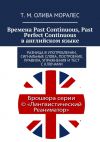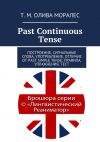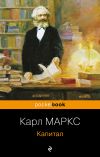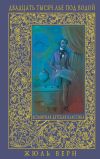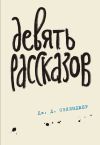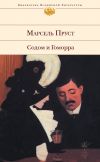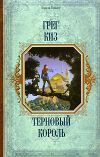
Автор книги: Елена Музланова
Жанр: Учебная литература, Детские книги
сообщить о неприемлемом содержимом
Текущая страница: 8 (всего у книги 12 страниц)
11.5. PHRASAL VERBS
Test 11. Phrasal verb to come: fill in the correct prepositions or adverbs.
1. It was some time before he came ___ after being knocked out.
2. He came ___ to my way of thinking after a good deal of argument.
3. It’s no use trying to keep this secret; it’s sure to come ___ in the end.
4. The question of salary increases will come ___ at the next general meeting.
5. Those rust marks will come ___ if you rub them with lemon.
6. Seeing me from across the room, she came ___ me.
7. He came ___ a fortune last year. (He inherited it).
8. Wait till prices come ___ again before you buy.
9. Come ___. It’s far too cold to wait here any longer.
10. The handle of the tea-pot came ___ in my hand as I was washing it.
11. I came ___ a vase exactly like yours in an antique shop.
12. I’m at home all day. Come ___ whenever you have time.
13. The expected answer came ___.
14. Has she come ___ the book yet?
15. Come ___ the taxi’s waiting for us.
16. They are coming ___ Sunday.
17. I came ___ to the country cottage in the morning.
18. The button has come ___.
19. He has come ___ the property.
20. The buds are coming ___ now.
Test 12. Phrasal verb to go: fill in the correct prepositions or adverbs.
1. I had to wait for permission from the Council before I could go ___ with my plans.
2. The guard dog went ___ the intruder and knocked him down.
3. He had a sandwich and a cup of tea, then he went ___ working.
4. I went ___ the proposal very carefully with my solicitor and didn’t accept the order.
5. The gun went ___ by accident and wounded him in the leg.
6. Wearing black for mourning went ___ many years ago.
7. She went ___ a beauty contest and got a prize.
8. The price of tomatoes usually goes ___ in summer in England.
9. If there isn’t enough soup to go ___ just put some hot water in it.
10. The early colonists of America went ___ many hardships.
11. You can’t go ___ ___ your promise now; we are depending on you.
12. I’ve changed my mind about marrying him; I simply can’t go ___ ___ it.
13. The plane crashed and went ___ in flames.
14. I refused to go ___ now. I’m going forward.
15. They have gone ___ all the calculations again but they still can’t find the mistake.
16. The party went ___ very well; we all enjoyed ourselves.
17. Mary went ___ in such a hurry that she left her passport behind.
18. Why don’t you go ___ ___ stamp collecting if you want to have a quiet hobby?
19. Her weight went ___ to 70 kilos when she stopped playing tennis.
20. Don’t go ___ food if you want to economize. Just drink less.
Test 13. Phrasal verb to give: fill in the correct prepositions or adverbs.
1. She won $300 and gave it all ___.
2. Riding is getting too expensive; I’ll have to give it ___.
3. He gave ___ all the books he had borrowed.
4. After two days of freedom, the escaped prisoner gave himself ___ to the police.
5. Your secret is safe with me. I won’t give you ___. (betray you).
6. He didn’t want to go to the cinema but they begged him so hard that he gave ___.
7. After his third attempt he gave ___ trying to pass the driving test.
8. The names of the winners were given ___ on the radio.
9. If you want to save money, give ___ eating in expensive restaurants.
10. There was a man giving ___ leaflets outside the church.
11. Don’t give ___ the ending of the story, it will spoil it.
12. What wouldn’t I give ___ a cool drink!
13. The news was given ___ that the political leader had died.
14. Ann gave ___ her college course and left the town.
15. I hope that the holiday will give me ___ my good spirits.
16. Give your examination papers ___ to the teacher when you finish.
17. You would never give ___ your friend’s secret, would you?
18. The liquid gave ___ a strong smell.
19. When are you going to give him ___ his camera?
20. Don’t forget to give ___ your exercise-book.
Test 14. Phrasal verb to put: fill in the correct prepositions or adverbs.
1. Put ___ the clock, it is twenty minutes fast.
2. I’ll put ___ my visit till you can go with me.
3. She had invited me to dinner but had to put me ___ as she was taken ill.
4. Put ___ the light. It’s getting quite light again.
5. That vase is very valuable. Put it ___ before you drop it.
6. He was very much put ___ when she rang off angrily during their conversation.
7. I wish you would put ___ the dishes instead of leaving them on the table.
8. He is not really angry. He’s only putting it ___.
9. The boy is hyperactive. I put it ___ ___ wrong diet.
10. Here’s a crash helmet. Put it ___.
11. I don’t know how you put ___ ___ the noise; it would drive me mad.
12. If you can’t find a room in a hotel, I could always put you ___.
13. The shortage of eggs has put ___ their price considerably.
14. The government put ___ the rebellion with great severity.
15. This clock is always slow; I put it ___ ten minutes every day.
16. He put ___ his name for the excursion.
17. Can you put ___ impractical people?
18. Automation puts ___ profits.
19. Then he put ___ the water to boil and brought out my laundry bucket.
20. He put ___ a whole week of work on that article.
Test 15. Phrasal verb to take: fill in the correct prepositions or adverbs.
1. I couldn’t take ___ the lecture. It is out of my capacity.
2. When he offered me only $3, I was too taken ___ to say a word.
3. She took ___ riding because she wanted to lose some weight.
4. He takes ___ his mother; he has blue eyes and fair hair too.
5. I am sorry I called you a liar. I take it ___.
6. He took ___ going for a walk every night before he went to bed.
7. I wish we could sell the piano; it takes ___ too much space here.
8. You’d better take ___ your coat if you’re too hot.
9. We took ___ each other the first time we met and have been friends ever since.
10. When his father died, Tom took ___ his business.
11. I saw in the water only an old tree. I took it ___ the Lock Ness Monster.
12. People often take me ___ my sister. We look alike.
13. He always takes ___ his false teeth before he goes to bed.
14. I took ___ Tom at chess and beat him.
15. Even a child wouldn’t be taken ___ by such an obvious lie.
16. The policeman took ___ the number of the stolen car.
17. If she takes ___ the job of director, she’ll have to work harder.
18. She makes a little extra money by taking ___ paying guests in summer.
19. He took ___ sister to the concert.
20. Try to take the chairman ___ after the meeting to discover what he thinks.
11.6. CONFUSING WORDS
Test 16. Choose the correct word in each of the following sentences.
1. I thought you said you (were going to/should) give up smoking.
2. Our new neighbours invited me in for a cup of tea. I must say they seem a very (nice/sympathetic) couple.
3. Was it Bell who (invented/discovered) the telephone?
4. I wonder if I might have a (recipe/receipt) for the things I’ve bought.
5. Oh, Jan, could you (remember/remind) me to phone the dentist this afternoon?
6. I wonder if you’d mind (bringing/fetching) John from next door? He’s wanted on the phone.
7. What (more/else) did you do in Spain, apart from swimming and sun-bathing?
8. I’ve just bought a record of Beethoven’s Fifth symphony (conducted/directed) by Karajan.
9. When we moved into our new flat I had to sell my (grand/wind) piano.
10. We’ll have to change the curtains, darling. They don’t (pass/match) the new suite.
11. A (classical/classic) example of actors and actresses playing love scenes was when Richard Burton and Elizabeth Taylor were filming ‘Anthony and Cleopatra’.
12. Many people nowadays are changing from large cars to small ones because they are far more (economic/economical).
13. If you try long enough then you’ll (eventually/possibly) succeed.
14. Miss Bright’s really (effective/efficient), isn’t she?
15. 1066 is one of the most (historical/historic) moments in British history.
16. I can’t read David’s handwriting at all; it’s quite (eligible/illegible).
17. The Centre Party has been (consequential/consistent) in its policy of opposing nuclear power.
18. The new price increases will take (affect/effect) on April 1st.
19. If animals have to be killed for food, then it should be done as (humanly/humanely) as possible.
20. Did you have (an opportunity/possibility) to visit the Louvre when you were in Paris?
Test 17. Choose the correct word in each of the following sentences.
1. There is a very good (Technological/Technical) College not far from where I live.
2. Did you know that Peter had arranged the party (specially/especially) for you?
3. I couldn’t care less one way or the other. I’m completely (uninterested/disinterested).
4. I hear that Manchester United beat Liverpool two – (nil/nought) in the last Cup match.
5. There is a very strong (possibility/opportunity) that man will land on the planet Mars.
6. South Wales was once a flourishing coal-mining area, but today there are hundreds of (misused/disused) coal mines scattered throughout the valleys.
7. My uncle has just got a divorce, which is very strange since he is a marriage guidance (councillor/counsellor).
8. I’m afraid the boot is full. There is no (room/space) for any more suitcases.
9. It’s much too hot. Let’s go and sit in the (shadow/ shade) for a while.
10. I’ll see you next week – (eventually/possibly) on Friday.
11. The tennis match was held up for ten minutes when the (umpire/referee) fainted.
12. Any idea what the present Government’s (politics/policy) is on defence?
13. They climbed up the steep stone (stairs/steps) leading to the old church.
14. I hope he has got a good (solicitor/barrister) to represent him in court.
15. What did you think of the (critic/write-up) we got in the paper this morning?
16. His (financial/economic) worries were solved when he suddenly won $25,000.
17. During the war, Vera Lynn’s songs contributed greatly to the (morals/morale) of the troops.
18. My flat is just around the corner from my office, which is (convenient/comfortable) for me.
19. The house I have just bought is close to shops, schools and other local (amenities/facilities).
20. Do you think the new tax changes will (affect/effect) you very much?
12. WORD FORMATION



Test 1. Add a prefix to the verb and put it in a proper tense. appoint
Attempts to communicate in a foreign language can easily misfire.
My friend is always ___ (1) by his attempts to speak French. understand
Once a waiter in Paris ___ (2) what he wanted and instead of
beetroots brought him potatoes. He ___ (3) potatoes but when like
he asked a waiter to ___ (4) them with beetroots the waiter smiled, place
and ___ (5) with a plate of aubergines. The waiter also ___ (6) turn
my friend attitude towards everyone he meets and when my take
friend complained that they had ___ (7) the meat, Paul (that was his cook
name if my friend isn’t ___ (8)) grinned. To cap it all my friend take
___ (9) the bill and accused the waiter of ___ (10) him. It was just my read
friend’s awful French again! charge
Test 2. Add a correct prefix to the following adjectives.
1. dependent; 2. polite; 3. logical; 4. historic; 5. Atlantic; 6. moral; 7. national; 8. relevant; 9. regular; 10. direct
Test 3. Add a prefix de-, ex-, multi-, semi-, sub– to the following words. You can use each of them more than once.
1. final; 2. partner; 3. standard; 4. national; 5. section; 6. ethnic; 7. zero; 8. regulate; 9. wife; 10. code
Test 4. Complete the chart with the correct noun. Words in bold will help you.


Test 5. Fill in the spaces in the following text using a suitable form of the words given at the end of the lines to form nouns.
It is no exaggeration to say that the world has become а global
village. Modern methods of ___ (1) have made the world much communicate
smaller and the problems we face such as ___ (2) are not restricted pollute
to one country. The ___ (3) of the rainforests in Brazil is destroy
everyone’s problem and the ___ (4) which is common in starve
many African countries is а challenge for Europe too.
The ___ (5) of rare species is а tragedy for the planet as а extinct
whole and the ___ (6) of oil supplies will shake the ___ (7) exhaust
of the world’s economy. The ___ (8) of the environment found
is the responsibility of all nations, rich and poor. protect
However, uncontrolled economic ___ (9) between strong compete
and weak nations leads to the ___ (10) of greater inequality create
between the rich and poor nations of the world.
Test 6. Fill in the spaces in the following sentences with the suitable adjectives formed from given words.
1. It is a very ___ road. danger
2. It was so ___ that she couldn’t see anything. fog
3. Everyone knows this actress. She is very ___. attract
4. This case is very ___. comfort
5. He is a ___ politician. fame
6. Great Britain is an ___ country. industry
7. She plays the guitar and she is very ___. music
8. Her mother is very ___. She economy
always tries to save money.
9. The shop is in the ___ part of the city. centre
10. The people were very ___ and knowledge
answered all her questions.
Test 7. Fill in the spaces in the following text using a suitable negative prefix of the words given at the end of the lines.
The British government has decided to take the ___ (1) decision
to ban smoking in a lot of public places. Though a popular
lot of people find smoking ___ (2), and though experts please
all agree it is ___ (3) and that it costs the state a lot health
to treat victims of smoking, it is also ___ (4) that many people deny
get pleasure from the habit and find smoking resist
___ (5) when they are in company. However, it is now ___ (6) to possible
deny the antisocial nature of the habit. As advertising
has proved ___ (7) with many smokers, the government effect
has now made smoking ___ (8) in most public places. legal
Smokers who are ___ (9) to stop smoking may feel the ability
new measures are unjust, but for the passive smokers for
whom a room full of smoke is ___ (10) they will come as bear
a breath of fresh air.
Test 8. Fill in the spaces in the following text using a suitable form of the words given at the end of the lines.
Speaking English Well
I have a Dutch friend who speaks English ___ (1). I have always beauty
wondered how the Dutch manage to learn languages
so ___ (2). The Dutch, like the Germans, often success
speak English ___ (3) than some native-speakers or well
at least they seem to speak the language more ___ (4) than correct
some English people. Wilfred says that if you
want to speak English ___ (5) with a reasonable fluency
accent, you should listen to tapes as ___ (6) as frequency
possible. If you can afford ___ (7) to go to an occasion
English speaking country, you should go but you should
also study the rules of English ___ (8), especially if care
you want to speak ___ (9). Wilfred also feels accuracy
very ___ (10) that there are no magic solutions strength
but that you simply have to work at the new language.
Test 9. Fill in the spaces in the following text using a suitable form of the words given at the end of the lines.
Memorial Day in the USA
Honoring the dead has been a practice of many ___ (1). civil
The ancient Druids, Greeks, and Romans ___ (2) decoration
the graves of their loved ones with flowers.
In the United States, the ___ (3) have been death
honored on Memorial Day since the time of the Civil
War. In 1967 a ___ (4) of President Johnson proclaim
and a ___ (5) congressional resolution officially join
recognized Waterloo as ‘the birthplace of Memorial
Day’. And the Memorial Day is ___ (6) on observation
the last Monday of May. Each year the President of
the US issues a special Memorial Day ___ (7) which proclaim
includes a call for ___ (8) to observe the city
occasion as a day of prayer for ___ (9). peaceful
Memorial Day observances are by no means ___ (10) limit
to the big ___ (11) cemeteries. In towns and cities,
across the land, veterans’ groups, civic ___ (12), nation
family groups, and individuals decorate graves organize
with flowers or with small American flags. In many
communities there are parades. Parade ___ (13) include participate
veterans and armed forces and a lot of other
people. Memorial Day has also ___ (14) marked tradition
the ___ (15) of summer. begin
Test 10. Fill in the spaces in the following text using a suitable form of the words given at the end of the lines.
This ___ (1) was built in the 1920s and became showcase for ___ (2). neighbour, architecture
Each architect had one plot on which to ___ (3) one house. In spite of this, builder
the area has a ___ (4) unified style. Look, for example, at these wonderful
houses on our left. At that time very few people lived in their owner
___ (5) apartments; those flats had no ___ (6) water, bathrooms and other run, convenient
___ (7). And here was a ___ (8) building project which attempted mass
both to show the ___ (9) styles in which apartments could be difference
built, and to improve ___ (10) conditions. live
Test 11. Fill in the spaces in the following text using a suitable form of the words given at the end of the lines.
Life used to be ___ (1) for teenag ers. They used to have money to funny
spend, and ___ (2) time to spend it in. They used to wear ___ (3) freedom
clothes, and meet in coffee bars and discos. Some of them still teenager
do. But for many young people, life is harder now. Jobs are ___ (4) to find. difficulty
There’s not so much money around. Teachers say that students work ___ (5) hard
than they used to. They are ___ (6) interested in politics, little
and more interested in ___ (7) exams. They know that good exams pass
may get them ___ (8) jobs. Most young people worry more about good
money than their parents did twenty years ago. They try to spend little
___ (9) and save ___ (10). They want to be able to get many
homes of their own one day. Three quarters of ___ (11) young Britain
people do more or less what their parents did. They did their ___ (12) good
at school, find some kind of work in the end, and get married in
their early ___ (13). They get on well with their parents and twenty
enjoy their ___ (14). They eat fish and chips, watch football on live
TV, go the pub and like ___ (15). After all, if they didn’t, they read
wouldn’t be British, would they?
Test 12. Fill in the spaces in the following text using a suitable form of the words given at the end of the lines.
As your children move towards ___ (1) it is ___ (2) to make depend
sure that they understand what decent values are. To importance
prevent children from becoming ___ (3) and ___ (4) you should spoil
not indulge them too much. To make sure that they grow up greed
well– ___ (5) they should be taught to be ___ (6) from an manner
early age. Children should be scolded for bad ___ (7), politeness
which will be an effective way of helping ___ (8) to distinguish behave
right from wrong. You need to reward your ___ (9) when they they
do things well to give them a sense of ___ (10) but you must child
be careful not to overdo it or they may become ___ (11). proud
You should try to make your children ___ (12) and respectful conceit
of other peoples beliefs by exposing them to ___ (13) tolerate
races and cultures. Parents should try to place great difference
___ (14) on setting a good example to their children, important
because children’s behaviour is often an ___ (15) of that imitate
of their parents.
Test 13. Fill in the spaces in the following text using a suitable form of the words given at the end of the lines.
The ___ (1) of children starts as soon as they are born. Boys are educate
allowed to make more ___ (2), to play with guns and cause more noisy
trouble. Such education prepares boys for ___ (3) in the world powerful
but for little else. But all boys are ___ (4). Some boys are differen
good at ___ (5) and poetry whereas others are good at football cook
or maths. Boys aren’t just ___ (6) and rebels, ‘machos’ and conform
‘wimps’. If we can ___ (7) them that all these types are okay, assurance
it may help to reduce the ___ (8) of those boys who are the least macho. bully
Test 14. Fill in the spaces in the following text using a suitable form of the words given at the end of the lines.
The ___ (1) of fingerprints reached Britain in 1901 and systematize
proved ___ (2). In 1930, Scotland Yard set up its first use
___ (3) system to enable officers to compare fingerprints found on classify
the scene of the crime with those of ___ (4) known to the crime
police. Fingerprint technology has advanced ___ (5) since then. great
Different types of powder are used to ___ (6) the impression of the strength
fingerprint before it is taken. Another ___ (7) revolutionary
has been in the way that fingerprints are identified. Today, the
first ___ (8) is done by the computer, which then produces searching
a ___ (9) of possible matches. The final ___ (10) however is select
done by police experts. identify
Test 15. Fill in the spaces in the following text using a suitable form of the words given at the end of the lines.
In the past, any mother would be ___ (1) if her children were pride
round and slightly fat. Those days are gone. ___ (2) have now research
reached the ___ (3) that too much fat and sugar in children’s conclude
diets are a major factor in the ___ (4) of heart diseases and develop
other ___ (5) when they are older. However, growing children need ill
to eat a wide range of foods, and their general health could be
___ (6) by cutting out particular ones. Psychologists say that the danger
___ (7) is not to change eating habits too fast, but to do it ___ (8), solve
so that children do not lose muscle in addition to fat. Parents should care
present food a little ___ (9), spread butter thinly and avoid difference
putting sugar on the table. Children should also be ___ (10) to courage
take part in sports: this way they will be using the calories
that they have eaten.
Test 16. Fill in the spaces in the following sentences using a suitable form of the words given at the end of the lines.
1. What can we do to reduce the ___ of the atmosphere? pollute
2. The change in the climate has produced ___ floods. disaster
3. Many rare species are threatened with ___. extinct
4. Many of the gases produced by factories are ___ to our health. harm
5. Exhaust fumes have ___ effects on the environment. damage
6. Many countries must try and control the growth of the ___. populate
7. Protecting the environment is essential to our ___. survive
8. The protection of the environment is everyone’s ___. responsible
9. While some countries get richer, the ___ in others get worse. poor
10. Millions of people in the world are threatened with ___. starve
Правообладателям!
Это произведение, предположительно, находится в статусе 'public domain'. Если это не так и размещение материала нарушает чьи-либо права, то сообщите нам об этом.







